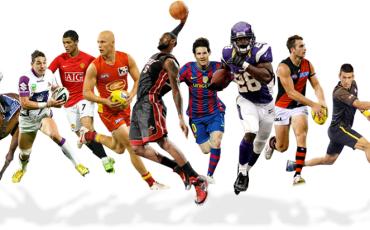Category: Sports Psychology
-

Talent Development
How do talented children become elite adult athletes? Many young people start on the road toward becoming professional athletes, but few achieve this level of performance. The development of talent across a range of achievement domains, such as music, art, science, and sport, is a classic area of psychological research. Over the past 20 years …
-

Participation Motives
The most commonly and consistently cited motives for participating in sport are developing and displaying competence (from learning new skills), experiencing challenges and success, acquiring social benefits that arise from affiliation to a group or team, improving fitness, and having fun. On the other hand, reasons for sport withdrawal include the attraction of other activities, …
-

Parenting and Sport
The developmental psychologist Jacquelynne Eccles suggested that parents influence their children’s involvement in sport in three ways: as providers, role models, and interpreters. Parents provide children with opportunities to participate in sport by signing them up for programs, transporting them to practices and matches, paying registration fees, and so on. Parents can act as role…
-

Friendships and Peer Relationships
Peers have a particularly powerful social influence on youth development, particularly during adolescence. Positive peer interactions can help adolescents acquire a range of skills, attitudes, and behaviors. In sport settings, high levels of peer support and quality friendships have been associated with higher ratings of sport enjoyment, commitment, intrinsic motivation, and perceived competence. Definitions Alan …
-

Coach–Athlete Relations
The coach–athlete relationship is a unique interpersonal relationship characterized by mutually and interconnected thoughts, feelings, and emotions between an athlete and a coach. There are different types of coach–athlete relationships, including traditional coach–athlete dyads (the coach and athlete are not related in any way other than their coaching relationship), married coach– athlete dyads, and family…
-

Youth And Sports
Organized youth sport became popular in the 1920s (in the United Kingdom, at least) in part based on the idea that sport could help to produce well-grounded, physically strong, morally sound boys who would be successful contributors to society, particularly in the military and business worlds. In contemporary societies, there are competing reasons for promoting…
-

Team Communication
Communication is commonly defined as a transmission of thoughts, feelings, information, knowledge, and ideas by means of written or verbal messages. However, when people communicate face-to-face, they position their bodies in a certain way, vary their stance, control their eye gaze, and move their hands in particular manners. Therefore, there is an additional set of…
-

Team Attributions
In his influential theory of motivation and emotion, Ivan Weiner proposed that attributions, the reasons that people use to explain the causes of behavior, are powerful determinants of emotions and motivation. Although attribution researchers in sport have predominantly focused on self-referent attributions (attributions for one’s own behaviors), it has been proposed that team attributions, the …
-

Stereotype Threat Definition
Stereotype threat is the perceived risk of confirming, as self-characteristic, a negative stereotype about one’s group. Over 300 studies on academic testing show that the threat of confirming a negative stereotype about one’s group sets into motion a sequence of psychological processes that inhibit cognitive capacity and exacerbate performance monitoring. As a result, stigmatized individuals…
-

Status in Sport
Status represents an individual’s social standing in relation to others. Attributes of status can be based upon physical characteristics (e.g., age) or intangible attributes (e.g., prestige, prominence). Individuals with higher status are often afforded more social benefits including respect, more unsolicited help from others, greater praise for performance, disproportionate credit for successful collaborative efforts, and …